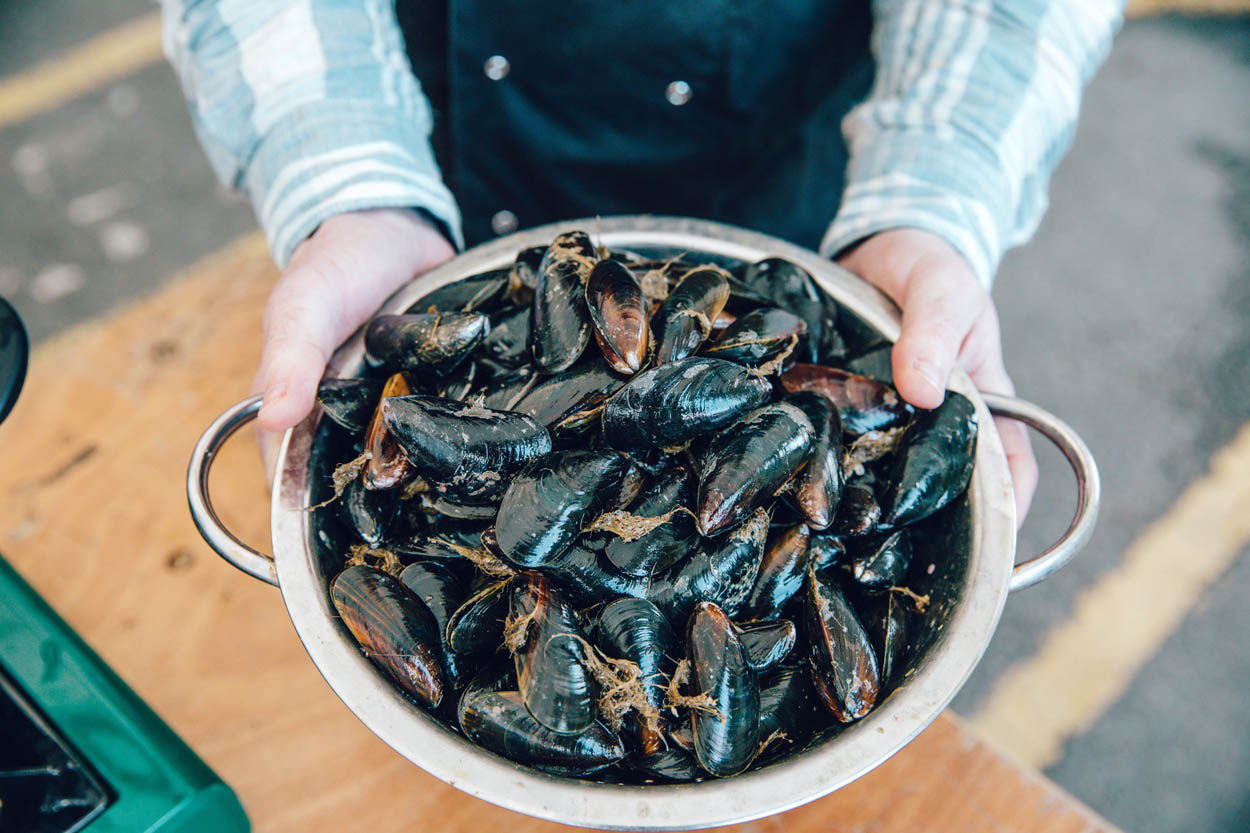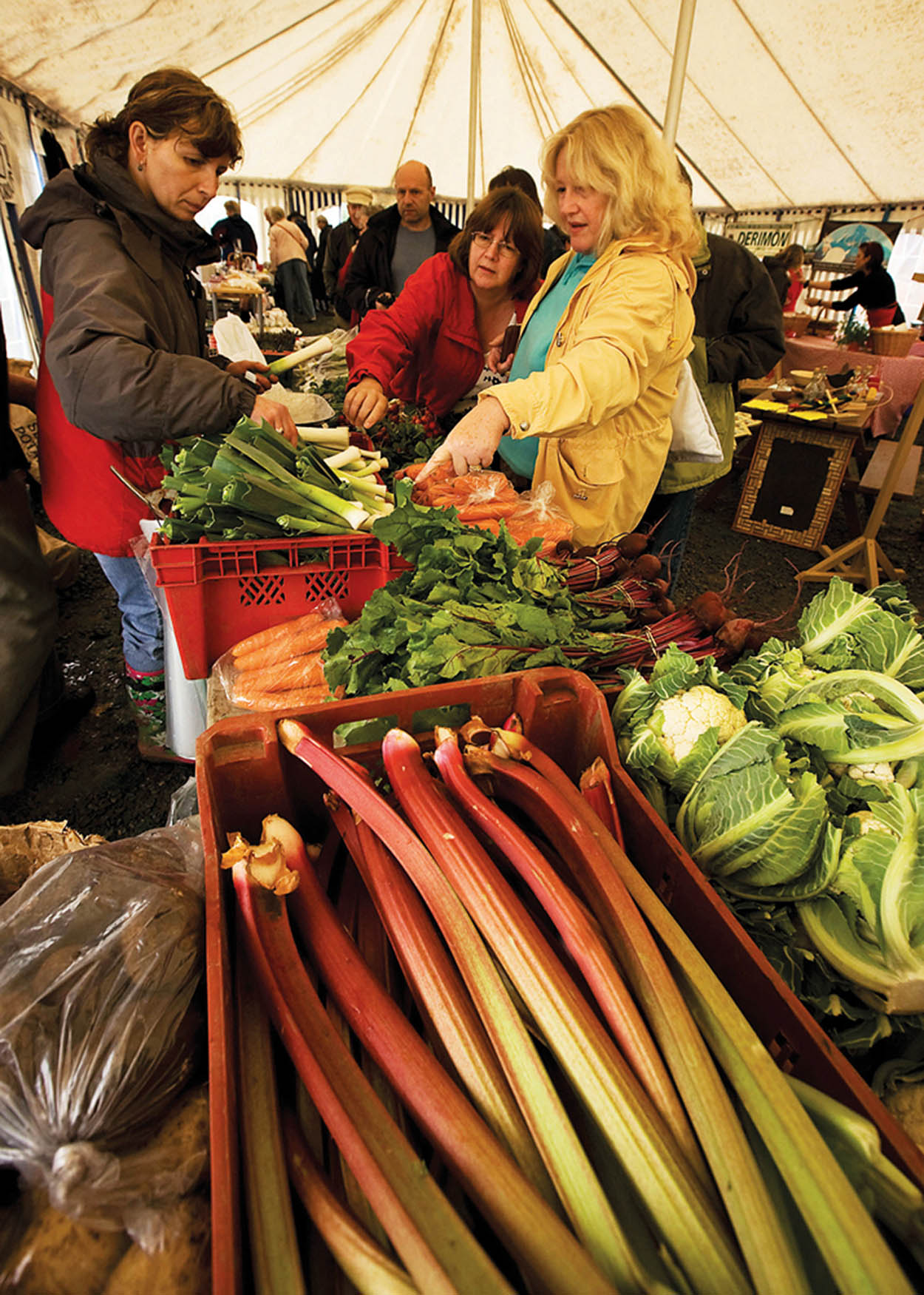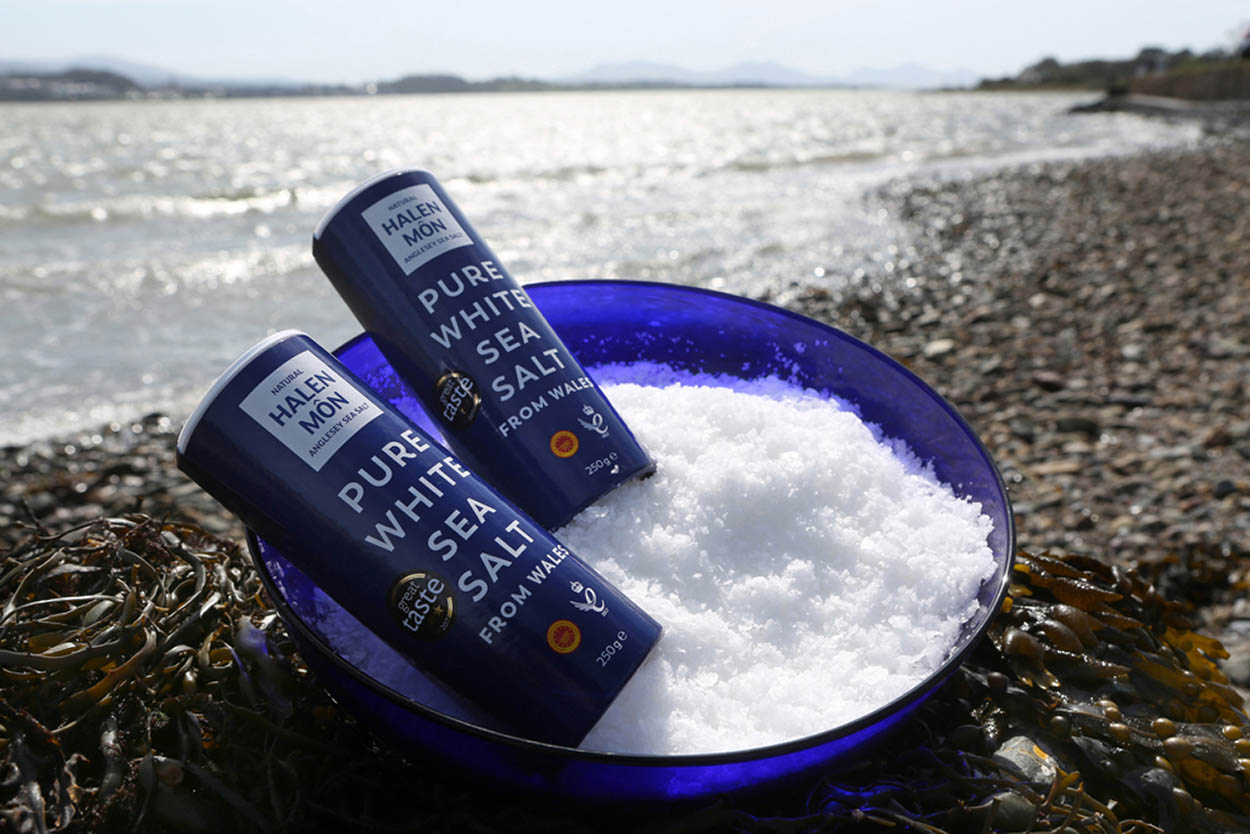
A bowl of fresh mussels at the Gwledd Conwy Feast.
Crown Copyright
Food and drink
You can eat practically anything you want in North Wales, especially in large settlements such as Caernarfon, which offers everything from Thai cuisine to traditional teas. You certainly won’t go hungry, as portions tend to be generous. In recent years there has been a move to put local produce on menus, and this is worth seeking out – especially as it is often high quality and organic.
You have a wide choice of places to dine in North Wales – from hotels and restaurants with rooms, to neighbourhood restaurants, cafés and bistros. And don’t forget the pubs, many of which serve good food and are particularly popular for Sunday lunch.
Welsh dishes
North Wales is justly proud of its succulent mountain-bred lamb and black beef, as well as salt-marsh lamb that is reared around Harlech. However, many visitors also savour the region’s seafood. The Conwy Estuary and Menai Strait, both shallow and strongly tidal, provide ideal conditions for the cultivation of mussels, delicious served in a white wine and cream sauce, while the rocky shores around Anglesey and the Lleyn Peninsula yield excellent oysters, crabs and lobsters. For colder days try cawl, a traditional meat, root vegetable and leek soup; or perhaps lobscows, a warming lamb broth.

A bowl of fresh mussels at the Gwledd Conwy Feast.
Crown Copyright
Fresh local vegetables, including the iconic Welsh leek, are widely available, and there are some delicious Welsh cheeses to try. The latter are produced in the south and west of the country, rather than the mountainous north, but are well worth seeking out – particularly some of the soft goat’s cheeses. The best-known Welsh cheese is crumbly Caerphilly. Cheese features in a number of Welsh dishes, such as Glamorgan sausages (made from vegetables, herbs and cheese), and Welsh rarebit, a tasty mix of cheese, mustard and ale that is then grilled on toast.
Snowdonia specialities
Different parts of Snowdonia have their own products: organic meats from the Rhug Estate at Corwen and Cadwalader’s celebrated ice cream (which originated at Criccieth in the 1920s but is now widely available) are just two examples. Then there is Halen Môn salt, a sea salt from Anglesey that is highly praised by top chefs. Morning coffee and afternoon tea provide opportunities to enjoy griddle-cooked Welsh cakes (cacen radell) which are flat, circular, fruited and spread with butter or caster sugar. Another teatime favourite is bara brith, a fruited tea bread.
The great Liberal politician and statesman David Lloyd George, who lived near Criccieth, relished simple Welsh country fare. Traditional recipes compiled by the Criccieth Women’s Institute and first published after World War I included Steamed Snowdon Pudding under ‘Recipes for the Favourite Dishes of the Prime Minister’ section.

Llandudno Farmers’ Market.
Alamy
Welsh beer, wine and whisky
Beer is still the traditional alcoholic drink in Wales, the main brewery, Brains, is based in Cardiff in the south. To sample a real North Wales beer, look out for Purple Moose beers, which are brewed from an independent brewery in Porthmadog. The landscape of the north is unsuited to vine growing; however, there are vineyards in South Wales where viticulture dates back to Roman times. Cariad Wines, from Llanerch, and Tintern, Parva Wines, from Tintern are the producers of some increasingly acclaimed whites. Also look out for Welsh mead, a fermented ‘honey wine’ made with honey and water: it’s sweet – and often unexpectedly potent. A surprising addition to the Welsh drinks market came in the year 2000 when Penderyn distillery opened near the Brecon Beacons in South Wales; they’ve recently opened another distillery in Llandudno. It produces several single malt whiskies, as well as a Brecon Botanicals gin, a Brecon vodka and Merlyn Cream Liqueur. It’s certainly worth seeking out in specialist stores.

Halen Môn - Anglesey Sea Salt.
Cadwalader’s Café
Farmers’ markets
Going to a farmers’ market is a great way to meet local people, as well as to pick up fresh local produce. They are held all over North Wales, some weekly (like that held each Thursday in Colwyn Bay), others monthly such as Anglesey’s (Menai Bridge) and Dolgellau’s (Eldon Square), the third Saturday and Sunday of each month respectively, and Mold’s (St Mary’s Church Hall) on the first and third Saturday of each month.
Find our recommended restaurants at the end of each Tour. Below is a Price Guide to help you make your choice.
Eating out price guide
Two-course meal for one person, including a glass of wine.
£££ = over £30
££ = £15–30
£ = under £15